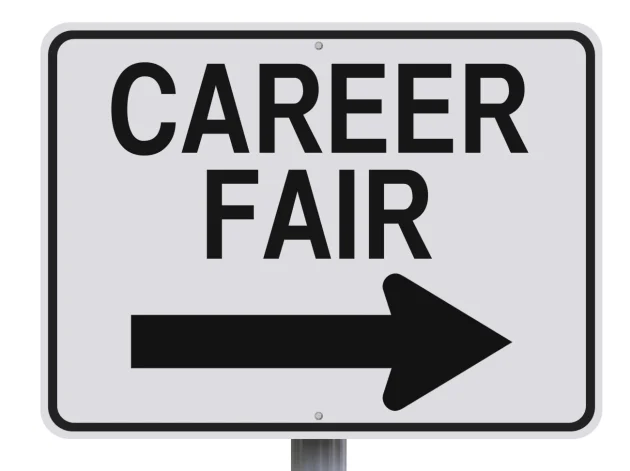By Amanda Harbrecht, Social Media Intern
Many colleges and universities host career fairs for their students. These events are a great way to connect with alumni and representatives from various organizations to learn more about career and internship positions. Although the thought of attending one of these events can be nerve-wracking for some, career fairs are an incredible resource. Attending a career fair can create valuable connections with alumni and help students develop important networking skills. The best way to make these events as easy as possible is to show up prepared. Here are some tips to make sure you are ready for your next career fair.
1. Update your resume.
You will undoubtedly give your resume out at these events, so it needs to be ready to go. Your resume represents you and in many ways is how you make a first impression, so you want it to be proud of it. Double check that there are no typos or formatting inconsistencies. Make sure your all most recent experiences are listed. Do not forget to start with the most recent experience first. Did you describe your experiences in a compelling way that shows off your skills? You should also take time to review your resume and be ready to discuss any of the work or projects listed. Think for a minute as the person reviewing your resume. What would he or she want to know about you? Is there a way to organize your resume to make very easy to read your accomplishments? Finally, make sure you bring several copies so you do not run out.
2. Research the companies and positions.
Most schools will have a list of the companies that are visiting for a career fair. Check out the list and figure out which ones interest you. Then, research a little bit about those companies and the types of positions they offer. What areas is the company involved in? What are the company’s values? How do those values align with your own? Where are their offices? You don’t want to waste the recruiter’s time asking questions you could find out online. Do the positions listed appeal to you? Do the position descriptions match your interests and skills? Doing research beforehand will help you be more informed when speaking with representatives, make it easier to engage in a conversation with them, and show potential recruiters that you have done your homework.
http://college.usatoday.com/2016/03/21/career-fair-tips/
3. Write an elevator pitch.
An elevator pitch is basically a short sales pitch, and what you are selling is you. An elevator pitch is a good way to start off the conversation with a recruiter. You want to tell them who you are, what you can offer a potential employer, and what you are looking for in terms of a career. You might say your name, your year, and your major to start. You also want to tell them why you chose your major, what skills you have gained through your course of studies, and why you are interested in the company. Having an elevator pitch prepared gives you a smart and succinct way to start off the conversation. This will help you to feel less nervous when approaching recruiters.
4. Have questions ready.
Asking questions is a great way to show you have done your research on the company and positions. It can also be a great way to get to know the recruiter and how he or she got to the position. A career fair is not just a place to hand out your resume. It is also a great networking event. Career fairs give you unparalleled access to recruiters. All the recruiters there have been students at some point, and they can give you great insight on the job or internship application process.
https://www.seattleu.edu/careerservices/employers/career-fairs/
While careers fairs can be very stressful, students should take advantage of such a valuable resource. Preparing for a career fair will help you feel less nervous and more confident on the day of the event. It is also a good idea to start attending these events early on during your college career, when there is less pressure. Then, when you are older and are looking more seriously for a job or internship, you will know exactly what to expect. The final tip is to try to relax and put your best self forward. Networking at a career fair is a skill you can practice, and the more you practice the better you’ll be. Eventually, networking will become second nature to you and might help you land the job of your dreams.



